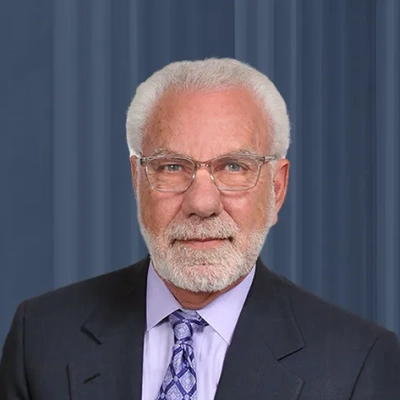Visionary leadership requires specific skills to attract and retain top talent in today’s competitive environment. Leading experts share practical strategies for building stronger teams through authenticity, purpose, and effective communication. These insights offer actionable approaches to transform leadership practices and create workplaces where exceptional talent wants to stay.
- Authentic Inspiration Creates Purpose Beyond Paychecks
- Clarity with Conviction Creates Shared Vision
- Making Uncertainty Purposeful Builds Strong Teams
- Vulnerability Transforms Failure into Growth Opportunity
- Authenticity Aligns Values and Builds Trust
- Curiosity Fosters Collaboration and Employee Loyalty
- Confidence Attracts and Transforms Team Members
- Generosity of Spirit Transforms Leadership
- Purpose-Driven Vision Acts as Talent Magnet
- Emotional Regulation Creates Safety for Engagement
- Paint Future Pictures That Excite Employees
- Adaptability Turns Change into Growth Potential
- Compelling Communication Inspires Loyalty and Commitment
Authentic Inspiration Creates Purpose Beyond Paychecks
Visionary leaders have an almost magnetic quality. They don’t just manage people — they inspire them to imagine, create, and commit to something larger than themselves. In an era where professionals seek meaning as much as money, the ability of a leader to articulate a compelling vision and embody authenticity has become one of the strongest predictors of talent attraction and retention. People follow leaders not because they have to, but because they want to believe in the future that leader represents.
The defining characteristic of a visionary leader is authentic inspiration — the ability to connect a grand vision to everyday purpose. These leaders don’t motivate through authority or fear; they lead through clarity, conviction, and genuine care. They share not only where the organization is going but also why it matters and how each individual contributes to that purpose. This sense of shared mission creates loyalty that transcends paychecks or job titles. Visionary leaders are also deeply empathetic — they listen, recognize potential, and provide psychological safety for innovation and failure alike. As a result, employees feel both valued and challenged, forming an emotional bond that makes them want to grow with the company rather than out of it.
I once joined a startup led by a founder who perfectly embodied this kind of leadership. During our first team meeting, instead of presenting metrics or investor updates, she spoke about the company’s “why” — how we were redefining accessibility in education for underrepresented students. She linked every role, from marketing to product design, back to that mission. Her transparency about challenges, combined with her belief in collective creativity, made us feel trusted and accountable. Within months, turnover dropped, and even as workloads grew, morale remained high because every team member understood the impact of their work. Her authenticity didn’t just inspire — it anchored us.
A visionary leader’s authenticity transforms vision into belief and belief into loyalty. When people feel inspired by a shared mission and supported by a leader who genuinely values them, they don’t just stay — they thrive. The best leaders don’t command followers; they create believers who carry the vision forward with pride and purpose.

Clarity with Conviction Creates Shared Vision
The characteristic that defines a visionary leader — and what truly attracts and keeps top talent — is clarity with conviction. Visionaries don’t just have big ideas; they make those ideas feel inevitable. They see a future that others can barely imagine, and they communicate it so clearly that you start believing you have a place in it.
What sets them apart isn’t charisma — it’s coherence. They can connect purpose, performance, and people in one breath. Working with a leader like that makes you feel like your work matters beyond KPIs — it’s part of a movement.
I remember being drawn to a leader who embodied this perfectly. In our first conversation, he didn’t talk about revenue goals or headcount. He talked about why the work existed — to challenge an outdated model and create something more human. That single conversation reframed my perspective on leadership. His vision wasn’t polished; it was raw, honest, and alive. He didn’t try to convince me with perfection — he invited me into possibility.
Over time, what kept people loyal to him wasn’t the perks or titles. It was the way he made them see themselves in the vision. Every person, no matter their role, knew how their contribution shaped the whole. He created psychological ownership, not just employment. And when someone leads like that, you don’t just follow — you build alongside them.
In my experience, that’s the essence of visionary leadership. It’s not about predicting the future — it’s about inspiring people to co-create it with you.

Making Uncertainty Purposeful Builds Strong Teams
One characteristic of a visionary leader that truly attracts and retains talent is their ability to make uncertainty feel purposeful. The best leaders do not eliminate risk; they give it direction. I learned this early in my career when I joined a team led by someone who was building a completely new business model in the training industry. There were no precedents, no case studies, and very little certainty of success.
What drew me in was how she framed every unknown as an opportunity for discovery rather than a problem to fix. She made each of us feel that we were part of building something meaningful, not just completing tasks. Even when the outcomes were unclear, her calm clarity and trust in the process gave everyone the confidence to push forward.
I try to bring that same quality into my own leadership. When people see that you value exploration over perfection, they feel safe to innovate. That sense of psychological safety is what keeps high-performing talent engaged for the long term. It is not charisma or authority that holds a great team together. It is the ability to make the unknown feel like a shared mission.

Vulnerability Transforms Failure into Growth Opportunity
Vulnerability is the trait that separates great leaders from ordinary ones. The person I worked with started each Monday meeting by discussing an error they had made in the past week. The entire room fell silent as he spoke, and we all started laughing, but more importantly, we began to share our personal struggles. The honest approach established a workplace where people no longer feared failure because it became an essential step toward advancement. People chose to stay because they believed their errors would not determine their worth. A visionary leader reveals their weaknesses to the public because these vulnerabilities showcase their ability to bounce back and their authentic nature.

Authenticity Aligns Values and Builds Trust
A sign of a visionary leader is authenticity — the ability to align words, actions, and values that build trust and a sense of purpose. I had a leader once who always practiced decision-transparency, discussing challenges and aspirations with the team in an open manner. This openness spawned a sense of co-ownership, making people work up to their potential because they effectively belonged to the company’s mission and not merely working for someone else’s vision.

Curiosity Fosters Collaboration and Employee Loyalty
The most magnetic trait of a visionary leader is curiosity. A true visionary always seeks knowledge because they understand that complete understanding is impossible. A leader I worked with used to conclude all his meetings by asking his team members, “What am I missing?” That small habit turned discussions into collaborations. The environment gave people complete freedom to share their thoughts, present new ideas, and take charge of their work. His interest in people resulted in creating a safe workplace environment which kept staff members because they experienced authentic care instead of strict supervision. Learning from anyone at any level of the organizational structure leads to workplace innovation and employee loyalty.

Confidence Attracts and Transforms Team Members
If I had to boil down the single most powerful trait of a visionary leader that attracts and retains top talent, it’s confidence. Not forced confidence, not arrogance — but that undeniable air of conviction and swagger that makes you believe in what they’re saying before you’ve even thought it through yourself.
Confidence is magnetic. People naturally want to be around someone who knows where they’re going and can speak with certainty about the journey. It makes you feel like you’re part of something bigger than yourself. And when times get tough (as they always do in business), confidence is what steadies the ship.
Early in my career, my first business partner had this quality in spades. He could walk into a room and command attention without saying a word. But when he did start speaking — about our business, our product, or the vision we were chasing — he did it with such clarity and conviction that people couldn’t help but lean in. Clients trusted him. Employees wanted to work for him. Even competitors respected him.
For me, being around that kind of leader was transformative. Confidence rubs off. When you’re exposed to it daily, you start to internalize it. I began speaking more assertively, presenting ideas with less hesitation, and taking bigger swings. It wasn’t about copying him — it was about learning that belief in yourself and your business is contagious. If you don’t believe in your own vision, why should anyone else?

Generosity of Spirit Transforms Leadership
The defining trait of a visionary leader is generosity of spirit. They share credit freely, knowledge abundantly, and opportunity widely. Generosity transforms leadership from possession into service. It invites ambitious minds to grow without fear of overshadowing authority. That expansiveness attracts brilliance and loyalty in equal measure.
I once worked beside an executive who insisted junior team members present major findings themselves. He wanted them to shine, not merely support. That gesture built confidence and accelerated development far beyond training manuals. His generosity turned competition into community. Great leaders know that lifting others elevates vision collectively.

Purpose-Driven Vision Acts as Talent Magnet
The ability to articulate a clear and compelling purpose-driven vision. Talented individuals aren’t just looking for a high salary. They’re looking for a mission. They want to feel like they’re making a tangible difference in people’s lives. For example, as the leader of a personal injury law firm, the best way for me to tap into this is by framing our firm’s work as a crusade for justice against powerful insurance companies.
This purpose-driven vision acts as a powerful magnet for A-players. When I interview a sharp, ambitious attorney, I don’t just talk about billable hours or case volume. I talk about our “why” — how we provide a voice to the voiceless and fight to restore dignity and security to families shattered by negligence. Talented individuals are drawn to this sense of being part of something bigger than themselves. It transforms the job from a series of tasks into a meaningful career.
This shared mission is also the glue that retains them. The daily grind of law is demanding and can lead to burnout. However, when your team is united by a common cause they believe in, it builds incredible resilience and loyalty. They aren’t just working for a paycheck. They are fighting for a purpose they share with their leader and their colleagues. That’s a force that money can’t buy.

Emotional Regulation Creates Safety for Engagement
One characteristic of a visionary leader that helps them attract and retain top talent is emotional regulation. When a leader can stay calm under pressure, hold space for different perspectives, and respond instead of react, it creates safety and safety is what keeps people engaged. I remember working under a leader who never rushed to fill silence in meetings. Their steady presence made it safe to share ideas, even the bold ones. That quality not only drew me to their team but inspired me to model the same in my own leadership.

Paint Future Pictures That Excite Employees
Visionary leaders are great when it comes to painting a picture of the future. Most people don’t want to work somewhere where they will be doing the same thing day-in and day-out for years to come. They’d rather be somewhere where things will become increasingly exciting with new opportunities for growth and moving upward. Visionary leaders can help people see how the latter is a possibility — if those people choose to work for them. That same ability to paint pictures applies to current employees, because they can then also help them reach toward those end goals.

Adaptability Turns Change into Growth Potential
Visionary leaders possess the essential trait of adaptability. The leader of my previous team made process changes that led to the creation of a new division under his direction while keeping employee morale high. He presented change as a chance for development instead of a requirement while asking all members to work together in building the new path. The method created ownership feelings among all participants, including those who had doubts. Leaders who adapt to change use uncertainty to create growth potential instead of attempting to avoid it. The organization views their talent as vital innovation collaborators instead of uninvolved spectators. Great minds stay committed to any change because they experience a feeling of belonging.

Compelling Communication Inspires Loyalty and Commitment
One characteristic that can help visionary leaders do this is being a compelling communicator. Virtually all of the visionary leaders I have met have been great at compelling communication, both when speaking to large groups and when speaking individually to people. This communication style naturally helps inspire people more, and as a result, that makes them want to work for these kinds of leaders more.


